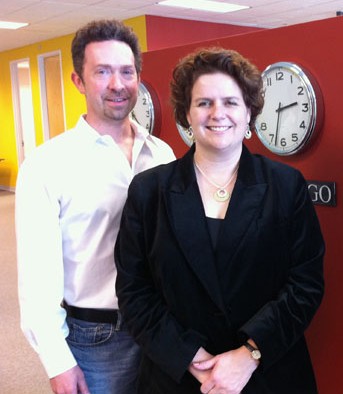In February 2011, Rick Fantini joined Menasha Corporation as vice president of human resources. He dedicates his days at the Neenah, Wisconsin-based company to leadership development, succession planning, executive compensation, regular compensation, recruiting strategy, and more. While his experience made him a great fit for this role, Fantini has paid his dues—spending time in sales, labor relations, and operations before becoming an HR leader. Here, he shares with Profile his unique career route.
I grew up in Detroit. For some reason, I wanted to be an FBI agent, so I got a degree in criminal justice from Michigan State. When I was graduating, I questioned if this was really what I wanted. After interviewing at a handful of companies, I accepted a job in sales. It was probably the best thing that ever happened to me. It taught me about planning, getting up every day, and trying to build a territory. I learned what I did yesterday didn’t matter—good or bad. My ego had to handle being rejected 90 percent of the time. After two years, I started going to grad school at night to get a master’s in labor and industrial relations. I’d been around unions all my life so I thought I would be a good negotiator.
When I graduated, I joined Appleton Papers as an HR representative, and I spent the next 25 years there. I had been in my first position 10 months before the human-resources manager position came open. They took a chance on me, and I really worked hard because I didn’t want them to be disappointed. That was the jumping off point of my career. I spent the next few years negotiating contracts and managing the benefits group before going back to school and getting my MBA from Kellogg. I was brought into the finance department as part of the strategic planning group.
When Appleton Papers wanted to centralize purchasing, they came to me. While I’d never been in purchasing, I was analytical and had the negotiating skills, so I became director of procurement. When the vice president of human resources position became available, they asked if I’d take on that role in addition to my responsibilities in procurement. In 2001, when the vice president of operations left, they asked me to take that position. It was a big job, but I really enjoyed it. When a new CEO came into Appleton Papers, I felt the company culture would change. I decided to go out on my own and start a consulting business. I never did anything like that, but felt I had been in the industry for a long time, and I was experienced.
One of my biggest clients was Appleton Coated. After some urging, I agreed to become their vice president of operations. I had planned on retiring there, but then the opportunity to work at Menasha Corporation was too tempting—I became most interested when they shared their growth plan.
I joke around, saying that I made four great decisions in my life. The best decision I ever made was marrying my wife. The second was when I joined Appleton Papers out of grad school, followed by when I left Appleton Papers because it was time. Finally, it was choosing to come to Menasha Corporation. I don’t think I would have done anything different.
I can say I’m a much better HR person now than when I was just starting in the field. By spending time in all the operational types of jobs, I can now look at decisions from a business perspective—not just a human-resources perspective. The biggest lesson I’ve learned dates back to my sales position at the age of 22: It doesn’t matter what you did yesterday—it matters what you do now and in the future. You have to go out every day, have confidence in yourself, and see where the opportunities lead you.

